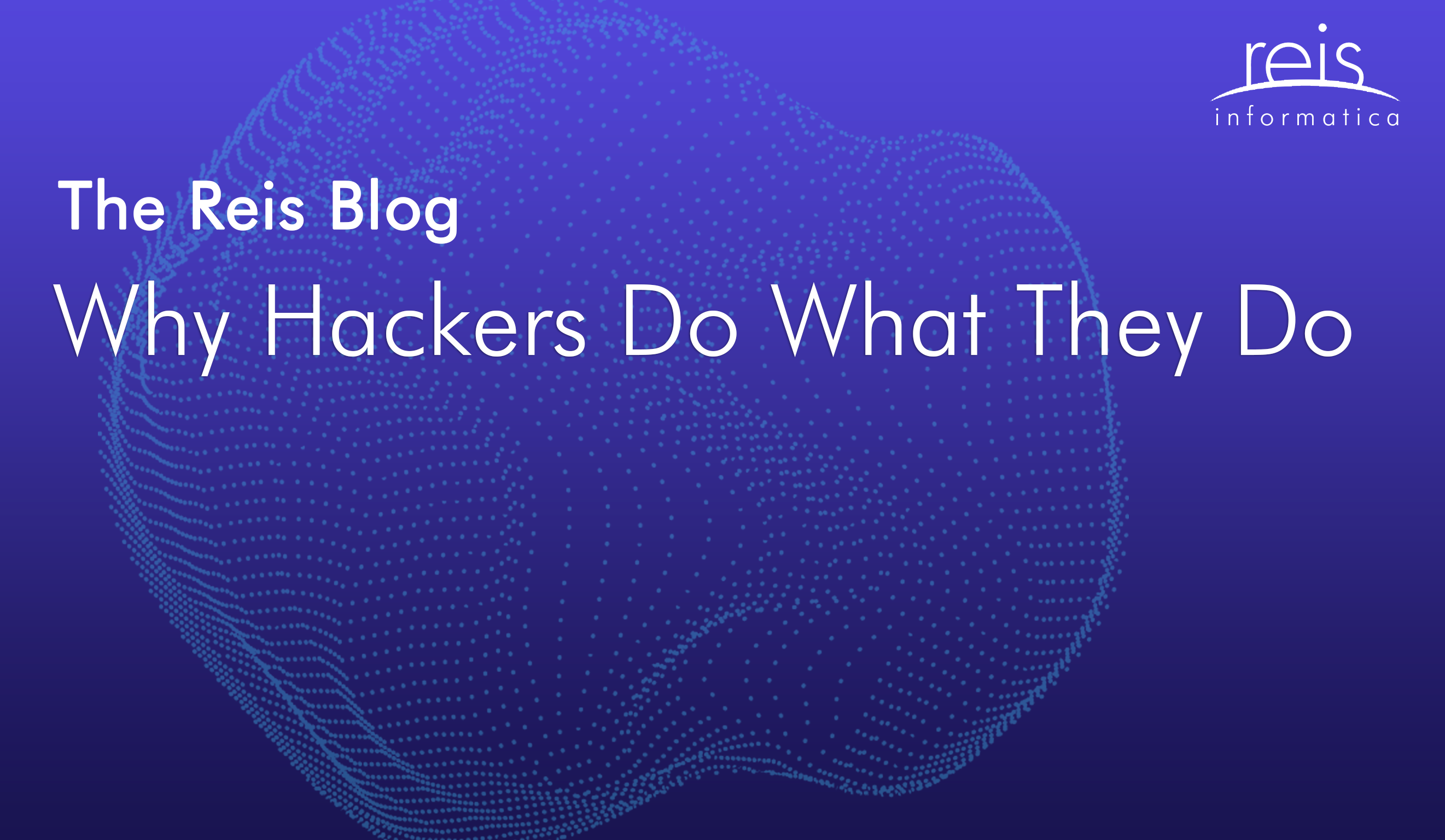One of the most prevalent questions asked in the IT and cybersecurity business is why do hackers hack in the first place? What do they gain from doing so much damage to thousands of companies?
Even though hacking is a risky game – often dodging robust security departments and security law enforcement – many individuals with vast amounts of knowledge related to information technology choose to take the risk of hacking. But, what are their motivations?

Different types of hackers
Before we go into the motivations of hackers, we must understand the different categories of hackers. They can be classified into three types:
1. Black hat hackers
When you think of hackers, this is likely the group that pops into your head. These are hackers that have the intention of exploiting vulnerabilities for personal gain. Additionally, these cybercriminals usually have automation tools and processes to help them profit from as many websites as possible.
2. White hat hackers
Not all hackers are malicious. White hat hackers are commonly known as ethical hackers hired by businesses or agencies to monitor their security vulnerabilities. They perform security techniques like penetration testing and vulnerability assessments to help improve company security for everyone using the systems.
3. Grey hat hackers
Hackers under this category fall into an ambiguous area of hacking. These individuals typically carry out their hacking missions without seeking permission from anyone. They mainly report vulnerabilities to concerned parties but demand they be paid in return for their efforts. If they are not compensated fairly, they may even exploit the vulnerabilities found.
Why do hackers hack?
While there are many reasons why each type of hacker chooses what they do, we will focus mainly on malicious hackers, or “black hat hackers,” for this post. The following are some examples of why they choose to hack.
1. To steal or leak information.
One of the more common reasons hackers infiltrate systems is to steal or leak the information obtained. This could typically be any data or information about your business, your customers, or even your internal employees.
Sometimes hackers hack into systems to steal information to obtain your customers or identity and use it for other motives like transferring money or even taking out a loan – which you’d then be responsible for. Even big companies like Capital One have been targeted, leaving the personal information of over 140,000 customers vulnerable!
2. To disrupt services.
Sometimes hackers may want to tamper with a system’s network. This can be done by creating bots to overwhelm a system with traffic that ultimately leads to system failure or by infecting networks with malicious software into computers via email.
3. To gain money.
Similarly to stealing data and information for personal gain, hackers use their valuable findings for their financial gain. Depending on the type of data they steal, they can use credit card information, contact information, high-security data – all of which can be used or sold to unethical marketers and competitors for financial gain.
4. For a purpose (hacktivism, political, etc.)
Some hackers hack into sites for specific and personal reasons. For example, they could potentially pursue a religious or political agenda or even use their skills to damage and vandalize websites that oppose their views.
Some even claim to be idealists and take it upon themselves to expose injustice or even target political and government systems. A well-known example of this is the cyber group Anonymous, famous worldwide for challenging many governments and exposing gratuitous plans.
What can you do to stay safe?
Because many businesses have an “it won’t happen to me” mentality, their data can be taken quite easily without the necessary security systems in place. The fact is that hacks happen all of the time for many different reasons, to businesses of all shapes and sizes.
One of the best things you can do as a business is to stay proactive and consistently test your infrastructure to ensure you are secure and protected from vulnerabilities. As they say, it’s always better to be safe than sorry. Learn more about Reis Informatica’s Cyber Security Solutions below.

